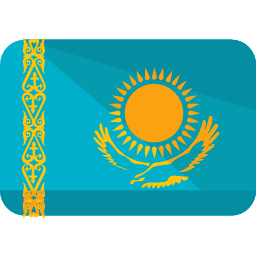Notary and Apostille Services for Legal Documents in South Korea
888-4004-234
Simbaking2022
When it comes to legal documents, ensuring their authenticity and validity is of utmost importance. The process of document verification and certification is facilitated through notary and apostille services Notaryappostille play a crucial role in the verification and authentication of legal documents in South Korea. These legal professionals are appointed by the government and are authorized to administer oaths, witness signatures, and certify the authenticity of various legal documents. So Notaryappostille is the best platform that provides Notary and Apostille services at a responsible price in South Korea.
Notaryappostille Services in South Korea
In South Korea, Notaryappostille service available for document verification. These services are commonly used for verifying the authenticity of official documents, such as academic records, identification documents, and legal certificates.
Notary Public: Notary public services are available in South Korea to verify the authenticity of documents, such as contracts, powers of attorney, and affidavits. Notaries in South Korea have the authority to authenticate documents by adding their seal and signature.
Korean Ministry of Foreign Affairs (MOFA): The MOFA provides document verification services for documents that need to be used internationally. This includes the verification of documents like diplomas, transcripts, and various certificates. The MOFA will authenticate the documents with an apostille, which is an internationally recognized certification.
Academic Transcript Evaluation Services: These services are used to evaluate and verify the educational credentials of individuals who have obtained their degrees from foreign institutions. Organizations such as the Korean Council for University Education (KCUE) and the National Institute for International Education (NIIED) provide evaluation services for academic transcripts.
Korea Immigration Service (KIS): The KIS offers document verification services for immigration-related purposes. This includes verifying and authenticating documents such as passports, visas, and other immigration-related paperwork.
Law Firms and Legal Services: Law firms and legal service providers in South Korea often offer document verification services for various legal purposes. This may include verifying contracts, legal agreements, and other legal documents.
Benefits of using Notaryappostille services
Legal Validity and Authenticity
The primary benefit of utilizing Notaryappostille services for legal documents in South Korea is the assurance of legal validity and authenticity. Notarization by a licensed notary public verifies the authenticity of the document, confirming that it was executed voluntarily and following the law.
International Recognition
The apostille issued by the Ministry of Foreign Affairs grants international recognition to notarized documents from South Korea. The Apostille is a standardized certification that is recognized and accepted by countries that are party to the Hague Convention. This recognition simplifies the process of using legal documents abroad, eliminating the need for lengthy legalization procedures or embassy endorsements
Convenience and Efficiency
Notaryappostille services in South Korea provide convenience and efficiency in dealing with legal documents. Notarization by a licensed notary public can be done swiftly, with the notary verifying the document's authenticity and the identities of the signatories.
Enhanced Legal Protection
By utilizing Notaryappostille services, individuals and businesses in South Korea benefit from enhanced legal protection. Notarized documents hold significant weight as admissible evidence in courts of law, providing a layer of protection against fraudulent or forged documents.
⦁ Confidence and Peace of Mind
Engaging Notaryappostille services instills confidence and peace of mind in legal transactions and processes. The involvement of licensed professionals provides assurance that the document has undergone proper verification, reducing the risk of disputes or challenges regarding its authenticity.
Process for verification of documents
When it comes to verifying the authenticity of legal documents, the process can vary depending on the type of document and the intended use. Certainly! The three main processes for document verification: Notary, Postal, and Legalization
Notary
Notarization is a process performed by a notary public, an authorized official who verifies the authenticity of documents and ensures their legal validity. The notary public confirms the identity of the signatories and witnesses by checking their identification documents, such as a driver's license or passport. Notarization is commonly required for various legal documents, such as affidavits, powers of attorney, contracts, and real estate transactions. The notary's signature and seal serve as evidence that the document is authentic and the parties involved have willingly entered into the agreement.
Postal
The postal verification process typically involves sending documents through postal mail for verification purposes. This method is commonly used when original documents need to be verified or certified copies are required. The individual or organization sending the documents will send them to the intended recipient via registered or certified mail.
Legalization
Legalization is a process that validates the authenticity of documents for international use. It is often required when documents issued in one country need to be recognized and accepted by another country. The process of legalization typically involves several steps:
a) Document Authentication
The document is first authenticated by the relevant authorities in the issuing country. This may include verifying the signatures of officials, such as a notary public or government representative, and attaching an apostille or authentication certificate.
b) Consular Legalization
If the country where the document will be used is not a party to the Apostille Convention, the document may need to undergo consular legalization. This involves submitting the authenticated document to the consulate or embassy of the destination country for further verification. The consulate will review the document and attach a consular stamp or certificate to confirm its validity.
Conclusion
Notary and apostille services are integral to the document verification process in South Korea. Notaryappostille play a vital role in certifying the authenticity of legal documents, providing an additional layer of trust and security. Apostilles, issued by the Ministry of Foreign Affairs, validate the notarized documents for international use, simplifying the process of cross-border transactions and legal proceedings.
FAQ's
A Notaryappostille in South Korea is authorized by the government to verify and authenticate legal documents. They administer oaths, and witness signatures, and certify the authenticity of various legal instruments, such as contracts, powers of attorney, and affidavits.
Notarization adds credibility to legal documents by verifying the authenticity of the document, ensuring that it was executed voluntarily, and confirming the identities and competency of the signatories. The notary's official seal and signature provide legal certainty and make the document more reliable as admissible evidence in courts of law.
An apostille is a certification attached to a document by a competent authority, indicating that the document is genuine and has been duly notarized. It is required for legal documents that need to be used in foreign countries. The apostille verifies the authenticity of the notarized document and simplifies its acceptance in countries that are party to the Hague Convention.
Apostilles in South Korea are issued by the Ministry of Foreign Affairs (MOFA). The MOFA verifies the signature and seal of the notary public who notarized the document. Upon confirmation of the notary's credentials, the MOFA attaches an apostille to the document, certifying its authenticity and enabling its recognition abroad.
Obtaining an apostille for legal documents provides international recognition and validity. It eliminates the need for additional legalization or embassy endorsements in foreign jurisdictions, streamlining the process of using the document abroad. The Notaryappostille ensures the document's acceptance and facilitates cross-border transactions, academic pursuits, and legal proceedings involving foreign parties.




























